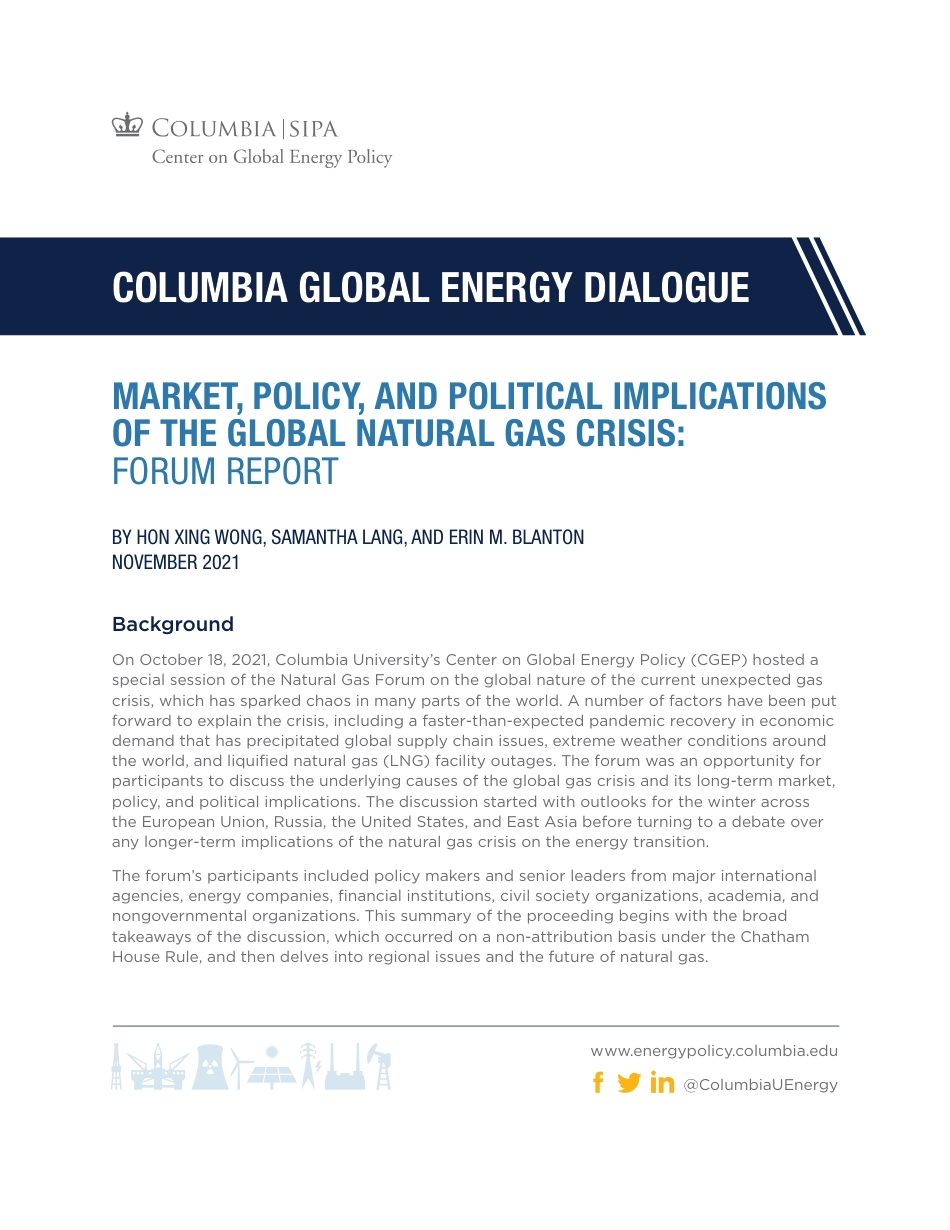COLUMBIA GLOBAL ENERGY DIALOGUEBackgroundOn October 18, 2021, Columbia University’s Center on Global Energy Policy (CGEP) hosted a special session of the Natural Gas Forum on the global nature of the current unexpected gas crisis, which has sparked chaos in many parts of the world. A number of factors have been put forward to explain the crisis, including a faster-than-expected pandemic recovery in economic demand that has precipitated global supply chain issues, extreme weather conditions around the world, and liquified natural gas (LNG) facility outages. The forum was an opportunity for participants to discuss the underlying causes of the global gas crisis and its long-term market, policy, and political implications. The discussion started with outlooks for the winter across the European Union, Russia, the United States, and East Asia before turning to a debate over any longer-term implications of the natural gas crisis on the energy transition.The forum’s participants included policy makers and senior leaders from major international agencies, energy companies, financial institutions, civil society organizations, academia, and nongovernmental organizations. This summary of the proceeding begins with the broad takeaways of the discussion, which occurred on a non-attribution basis under the Chatham House Rule, and then delves into regional issues and the future of natural gas.MARKET, POLICY, AND POLITICAL IMPLICATIONS OF THE GLOBAL NATURAL GAS CRISIS: FORUM REPORTBY HON XING WONG, SAMANTHA LANG, AND ERIN M. BLANTONNOVEMBER 2021www.energypolicy.columbia.edu @ColumbiaUEnergy MARKET, POLICY, AND POLITICAL IMPLICATIONS OF THE GLOBAL NATURAL GAS CRISIS2 | ENERGYPOLICY.COLUMBIA.EDU | NOVEMBER 2021Key TakeawaysBlame and Fear...



